From local niche to global player
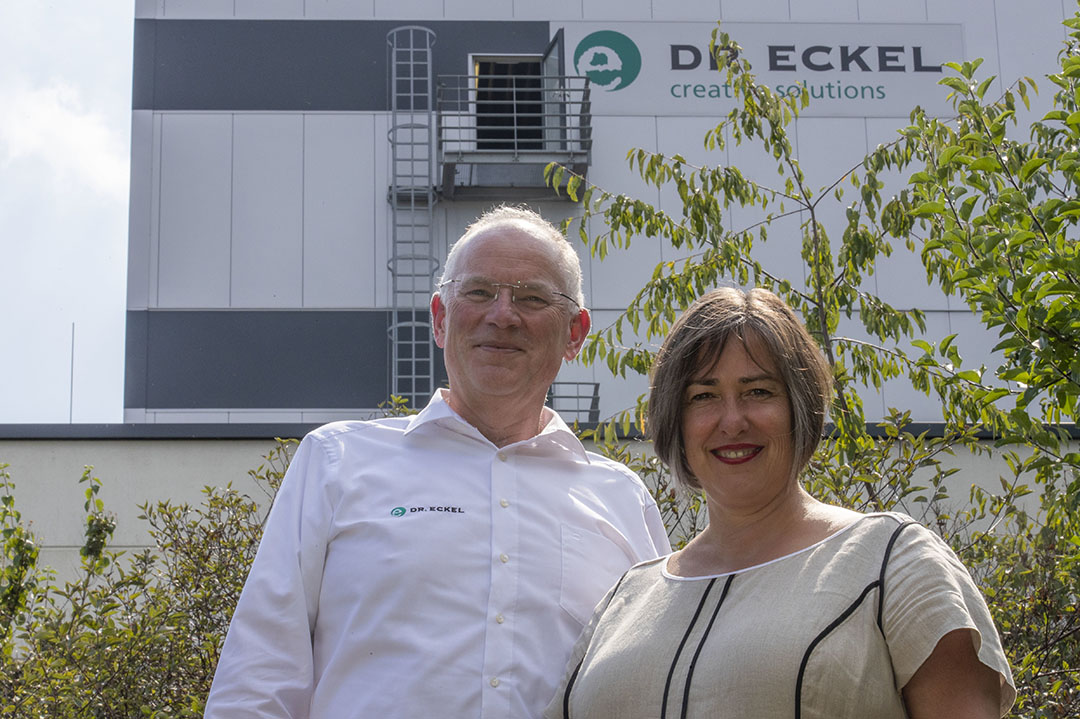
There wasn’t always applause when Dr Antje Eckel and her husband Dr Bernhard Eckel decided to start selling alternatives to antibiotics, 25 years ago. Yet history proved them right. Even more reason to listen to how they see today’s agricultural world today – and in a few years from now.
“The past makes an interesting story, but it is much more interesting to look into what is going to come. So we are trying not to look back too much.” With those words, Dr Antje Eckel summarises concisely what will be the angle for the upcoming seminar in November, celebrating the 25th anniversary of the feed additives company Dr Eckel. The president and her husband (also COO) Dr Bernhard Eckel like to cast a firm look into the future together with business friends they have made in this quarter of a century.
Together, Antje and Bernhard Eckel built up the company while integrating married life with business life, creating such a good balance that even their children Viktor, Klara and Theo have also expressed their interest in working in the company. The couple met at the Technical University of Munich, Germany, where in their first year in college they both followed the same classes before embarking on a study in animal production (Bernhard) and horticulture economics (Antje). Eventually Bernhard obtained his PhD with a focus on acidifiers in animal nutrition, Antje zoomed in on hops for use as vegetable, not for beer. Combine those typical fields of expertise together and voilà – there is a solid basis for a feed additives company with its own twist.
Despite looking ahead to the future, the idea of looking back cannot be entirely wiped out at a jubilee like that. An interview in All About Feed is the ideal place to do so.
All About Feed: Dr Eckel started off in 1994 distributing acidifiers and probiotics. Was the market ready for this type of product at that time?
Dr Antje Eckel: “It was a time when antibiotic growth promoters were still an industry standard. It was quite clear that this world was going to change – although we must admit in the beginning our customers were not so convinced.
“Family and friends working at universities or somewhere in the industry said in those early years: ‘It’s such a crazy thing to do. Nobody will ever buy these products! They are too expensive and antibiotics are very safe – they come from big multinationals, everybody knows how they use them and they are much cheaper.’ The same ones today say: ‘Oh wow, it was such a great niche when you started.’”
Still, despite scepticism, you managed to grow. What kind of clients bought your products?
AE: “Those who actually dared to buy would be the older purchasers, the ones that already had had experience in their career. The young ones would not dare, they were afraid that they would make a mistake and would not have a career.”
Fast forward to 2009 – a turning point in the history of Dr Eckel, the opening of their own factory in Niederzissen. What made you decide to construct it?
Dr Bernhard Eckel: “We had been quite successful with distributing our partner products in Germany. At one stage had 25-30% on enzymes, probiotics, acidifiers and we realised that future growth would be tough.”
AE: “We started to produce acidifiers in the Netherlands, where a toll producer could do that for us. Parallel to that, we had already started with R&D on a couple of very promising products. The research was partly funded by the local state or federal government as well as the EU. For the product AntaPhyt we knew we shouldn’t do so, because the formulation and production steps were very special. If an external producer would have had this knowledge, then the product would be somehow everywhere. That is why we started our own production in Niederzissen. Now we had to fill it with other products too because we did not know whether this new product would go well.”
Dr Antje and Dr Bernhard Eckel From a distribution company with supplies piled up in the garage, the pioneering feed additives company Dr Eckel developed in 25 years to be a multinational with over 30 products for poultry, pigs, cattle and fish. The product range includes e.g. phytogenic additives, acidifiers, mould inhibitors, anti-oxidants and mycotoxin binders with a strong focus on animal welfare. As from 2009, Dr Eckel has had its own production site in Niederzissen, Germany. In addition, the company extended its office in the heart of Bangkok, Thailand, as the company’s new international headquarters in 2017. Currently the company sells to more than 40 countries across the globe. |
You must have been convinced about the product. Why?
BE: “AntaPhyt is a very special product, based on hops, liquorice and other plant components. So that is a story related to my wife as she wrote her thesis at the Institute for vegetables, medical and spice plants on hops. It was quite interesting, as nobody had done any research on hops and this combination for animal nutrition at that time. Nobody really knows hops except for drinking beer and as a vegetable in hob producing areas. The first trial in chickens was conducted at the vet school in Berlin, Germany. The first thing we saw was that performance was excellent. But most interestingly litter quality was also improved – significantly so, leading to less footpad lesions. I was convinced that this product would have a great.”
Speaking of animal welfare – this forms a cornerstone in your approach, which is a bit a-typical for a company in the animal nutrition business. What made you choose for that?
BE: “Good health and well-being are the sustainability goal (SDG) number 3 of the WHO. SDGs are the scheme for a better world. We as industry and suppliers should fulfil as much as possible of those targets. Without well-being of animals, nothing will happen in the future in animal production. But also the consumer will not accept anything in the future what does not fit into his idea of well-being, whatever it is. To make it clear, we know animal welfare needs a holistic approach and we do our best to play our role in the chain.”
If you look back at those 25 years, what makes you the most proud?
AE: “I think that we took the decision to build our own production plant. I think that was the most important step, because at that time big discussions in-house were if this was really necessary. We were quite satisfied with where we were at that time. So to take that decision to go in a new direction, at a time when we were doing well, was a big step. And we managed quite nicely to convert from a distribution company into a production company. Nevertheless in Germany and some neighbouring countries we still provide partner solutions, where we also try to follow the SDGs.”
BE: “Our son would say, every time on the road passing the office: ‘You can be proud of what you achieved.’”
AE: “Sometimes in the weekend when he is here, we go for a walk. I may have something to complain about. When we go past the plant, he takes me by the shoulders and says: ‘Hey Mum, have a good look up there. I think you should not complain too much.’”
Is there something in those 25 years that you regret?
AE: “We should have started much earlier with production. Much earlier. Sometimes when you are successful, and you are so happy with yourself, you don’t look far enough ahead.”
How has the market changed in those 25 years in business?
BE: “You see the major changes in communication and consumer behaviour. Consumers are not the farmers at the end of the day. The consumer is the person who buys our animal protein, if it’s milk, meat, fish, whatever. And he is informed through Facebook, Instagram, and other platforms, in different ways than before, and many different photos are published. He has no agricultural background anymore as his ancestors, who understood the production quite clear. ”
AE: “People in our industry are still very much afraid of communication. Instead of communicating openly about the good things they do, they prefer not to communicate. And they do not realise that not communicating is totally wrong, because then others communicate for them. And they will communicate information, which people in our industry don’t want to be communicated. That is what the consumer sees. I am personally convinced that our industry needs to communicate more.”
What do you think will happen in the next 25 years?
BE: “We will get differentiation – production markets will go to a direction east from us. Also some of the Asian markets will move to other Asian markets. So for example in Thailand, I’m sure – even though they have big integrators – they will not produce everything themselves in the future. It will come from Myanmar, Laos, you name it, different locations. There will be a global production to supply the solutions for local markets.
“I also believe that meat consumption or better animal protein consumption in total will not increase as much as many are predicting, due to an increase in global population and an increase of the number of wealthier people.”
How do you explain that?
BE: “I travel quite often in South East Asia and you are for example in Indonesia, people will tell you: ‘We eat about 10kg of chicken meat per year and we don’t want to eat more.’ So the increase will be coming because the population is increasing. But the consumption per capita will not increase as much as expected.”
AE: “I think in total there will still be growth, because we still have areas where consumption is very very low and the global population will continue to increase until 2050. It won’t increase as much as we think just because we in Western Europe or in the US have such a high consumption… I think other regions will not go to that high consumption. There is also a new generation having a different idea of how to feed the family. And it will not be that much meat. But still, bottom line, total meat consumption will be higher than today.”
BE: “I believe chicken will have a stronger position everywhere and that roughly 40% of the total production will be chicken. I think the chicken market will increase, because these animals have the best FCR, has relatively low production costs, is good, and people believe it is healthy. I’m sure aquaculture will also gain market share globally.”
AE: “I personally think that the quality of what people buy will change. That is what you already see in Europe, the US and many emerging countries, that the families who can afford it, have a very close look at where their food comes from and how it is produced. Because they want to feed their family the healthy option.”
Join 26,000+ subscribers
Subscribe to our newsletter to stay updated about all the need-to-know content in the feed sector, three times a week. Beheer
Beheer
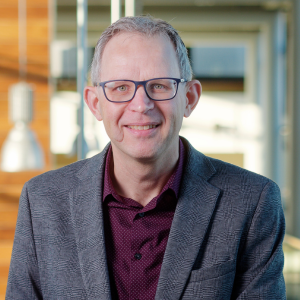
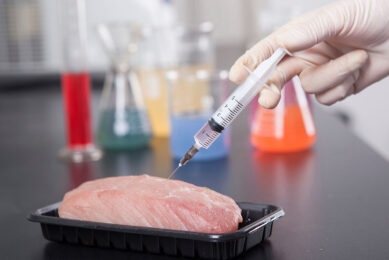
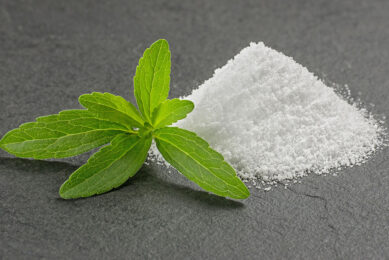
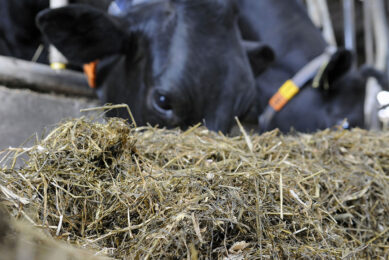
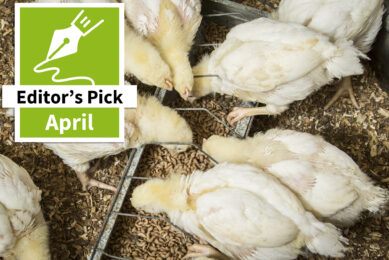




 WP Admin
WP Admin  Bewerk bericht
Bewerk bericht